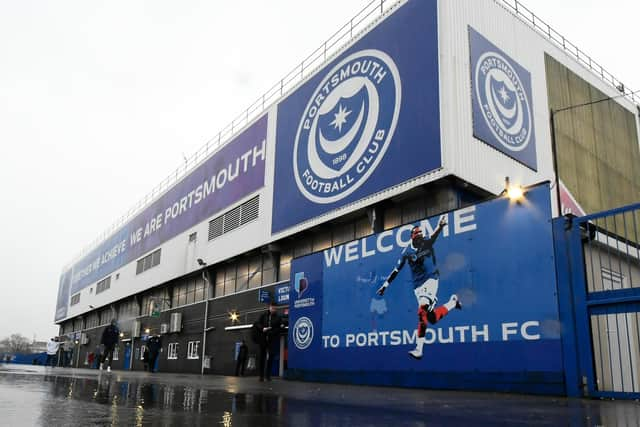EFL salary cap explained: how Portsmouth might be impacted by wage limits, squad numbers and transfer fees
and live on Freeview channel 276
But with a host of League One clubs behind the idea, along with EFL chairman Rick Parry saying some sort of limit on players’ wages is essential amid the current financial climate, we've taken a look at what it could entail for Pompey...
How much would the salary cap limit be?
In League One, the proposal is for a £2.5m wage ceiling on playing budgets per club.
Pompey’s current player salary is around £4m.
Advertisement
Hide AdAdvertisement
Hide AdIn League Two, the salary cap looks set to be limited to £1.5m for each side.
Championship clubs could also bring in a wage structure but a figure of £18m has been mentioned for clubs in the second tier.
Players who are below the age of 21 will be exempt from the restrictions, regardless of the division.


Will Pompey need to automatically slash £1.5m off their current wage bill, then?
Advertisement
Hide AdAdvertisement
Hide AdNo, existing players’ wages will be regarded as the league average for the remainder of the contract length.
Will there be a wage cap on individual player salaries?
There won’t be a maximum on how much a club can pay a player per week.
However, clubs’ average wage bills will have to amount to the cap when everything is added up.
It means an average weekly salary of around £1,800 per player – compared to the £3,500 level it currently sits at.
Will it impact player’s bonuses?
Advertisement
Hide AdAdvertisement
Hide AdAll bonuses except for promotion will be included in the salary cap.
It means clubs aren’t able to find a loophole in the rules by topping up wages via lucrative add-ons for the likes of appearances, goals and clean sheets.
Signing-on fees and relocation fees are also to be part of the limit.
Will transfer fees be included in the salary cap?
Transfer fees won’t be encompassed in the limit, only wages.
Advertisement
Hide AdAdvertisement
Hide AdHowever, it’s unlikely there will be any substantial sums paid for players in League One this summer because of the ramifications of the coronavirus crisis.
What would happen to clubs relegated from the Championship?
Clubs who are demoted from the second tier will be given a transition season to make changes.
That will likely mean they will have an advantage over the rest of their rivals for the campaign ahead due to greater squad numbers and budgets.
How many players could a team have in a squad?
The Telegraph reports that clubs could vote to have a maximum of 20 senior pros in their set-up.
Advertisement
Hide AdAdvertisement
Hide AdThey would have to include eight homegrown players who have graduated through the club’s academy.
It’s reported, however, clubs will be given a season to adjust squad numbers and will be allowed a maximum of 22 players for the upcoming season and 21 the following year.
Will playing budgets include agent fees?
Agent fees will also be included in the proposed figures for salary caps.
In the latest FA figures, Pompey paid out £220,367 in agent fees during 2019-20 – the fourth highest in League One.
Advertisement
Hide AdAdvertisement
Hide AdThat sum would account for almost a tenth of the Blues’ playing budget if a wage ceiling was introduced.
When could a salary cap be introduced?
The EFL seem set that they want a wage cap in place for the 2020-21 season.
It will need the backing of two-thirds of clubs when a vote is held, although a host of League One teams seem in favour.
However, Pompey chief executive Mark Catlin has revealed that the cap will likely to be backdated.
Advertisement
Hide AdAdvertisement
Hide AdThat means that, in effect, the Blues are already potentially under a salary cap regime, despite a vote yet to take place.
What might happen if clubs break the rules?
Points deductions are reportedly being considered by the EFL for teams that surpass salary cap limits.
It’s also believed that clubs will be given automatic points deductions for non-payment of player wages.
Comment Guidelines
National World encourages reader discussion on our stories. User feedback, insights and back-and-forth exchanges add a rich layer of context to reporting. Please review our Community Guidelines before commenting.